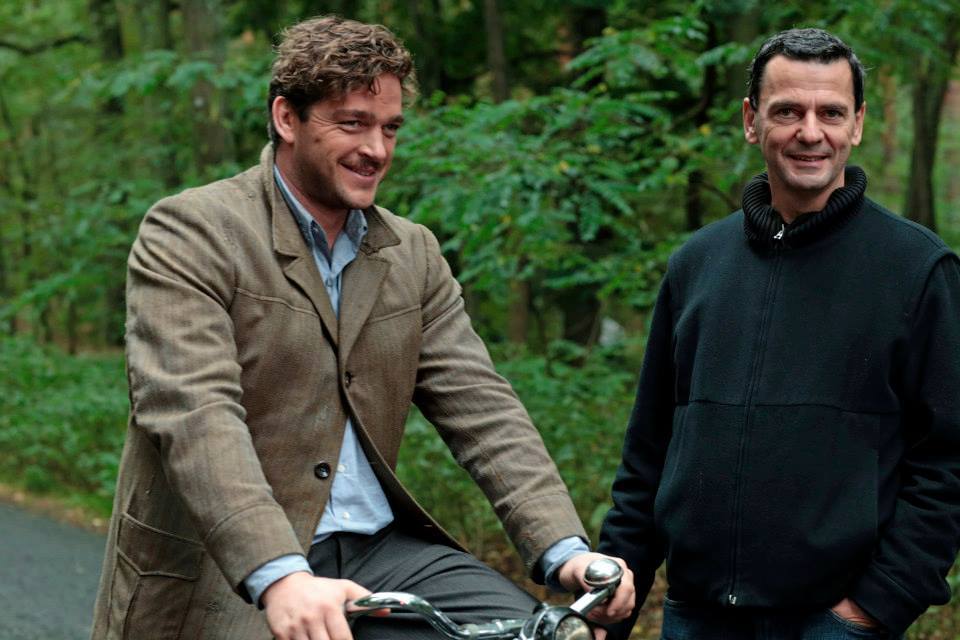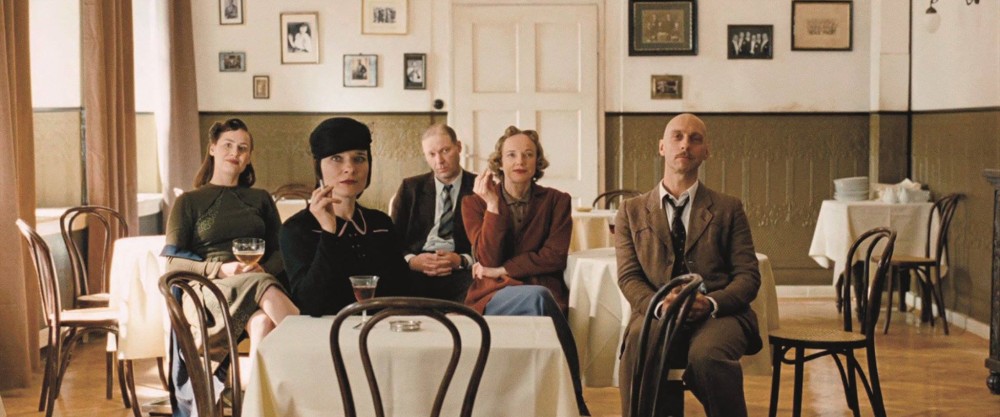Image above: Still from Phoenix (2015).
The Phoenix metaphor is apt for this post-war Berlin setting. It is the name of a seedy nightclub which has emerged from the rubble and devastation surrounding it. It is the location which draws the heroine Nelly Lenz (Nina Hoss), who has barely survived Auschwitz as well a reconstructive facial surgery to correct a disfiguring assault, to try to reconnect with her former life and locate her husband. She is being cared for her cousin Lene (Nina Kunzendorf) who has organized her surgery and who is trying to persuade Nelly to join her in Israel to start a new life. Reparations are being made to those Jews who had property and possessions confiscated by the Nazis and Nelly is there to make her claim.
Nelly is weak in body and spirit when she arrives in Berlin. Bruised and swollen from the surgery and still shell-shocked from the camp experience - the only emotion which is clearly driving her is her desire to find Johnny (Ronald Zehrfeld). They had performed together in cabarets before the war. What Lene knows and Nelly does not is that Johnny betrayed her to the Nazis, divorced her and believes her to be dead. When she finally tracks him down and he does not recognize her, she pretends to be ‘Esther’ and connives to entrap him at the same time he is scheming to lay a false claim on her confiscated property as her husband. Credulity is strained by this plot device which involves ‘Esther’ agreeing to impersonate herself, Nelly, as Johnny’s wife in return for half of her estate.
 Image above: Still from Phoenix (2015).
Image above: Still from Phoenix (2015).
What is unclear is exactly what is motivating her need to be re-united with this obviously unscrupulous and smarmy character. Whatever rapture she is hoping to recapture was obviously an illusion on her part. Yet she clings doggedly to this dream even as she humiliates herself by pretending to impersonate her former self for a man who does not even seem to remember her as a real person. He does not reveal any feeling for her memory or his loss. She is now only a means to an end. Nina Hoss, a longtime collaborator with Petzold, is mesmerizing to watch as she navigates her character’s efforts to please this man as a stranger, while having to repress the fact of her intimate knowledge of him as his wife. These extremes seem to cancel each other out and render her opaque and unfathomable as anything but a tragedian of operatic proportion driven by irrational desire beyond her control.
 Image above: Still from Phoenix (2015).
Image above: Still from Phoenix (2015).
The cinematography and atmospheric lighting create a tangible sense of postwar devastation, desperation and gloomy grittiness. One senses a world where brutality, betrayal, deprivation and monumental inhumanity have left behind only hollow shells in place of humans with functioning feelings and morals. It is a bleak landscape and makes an irony of the ‘phoenix’ metaphor which usually implies rebirth from the ashes. This still feels like a kind of death. And for Nelly to have survived all of her horrors only to succumb to the allure of all that which allowed the evil to occur seems like a nosedive back to the ashes. The final revelation leaves her state of mind still in doubt. It is not at all clear whether it is intentional on her part or accidental - when Johnny is unmasked. It is a wonderful directorial coup de grace which leaves us wondering.
by Belle McIntyre


 Image above: Still from Phoenix (2015).
Image above: Still from Phoenix (2015).